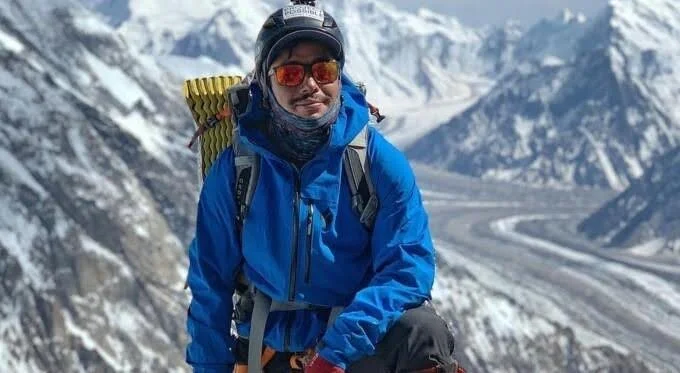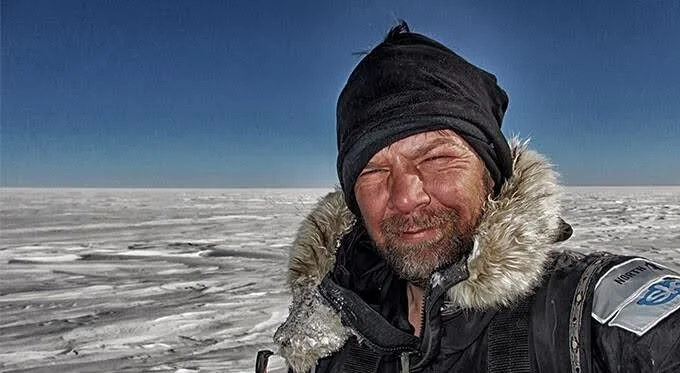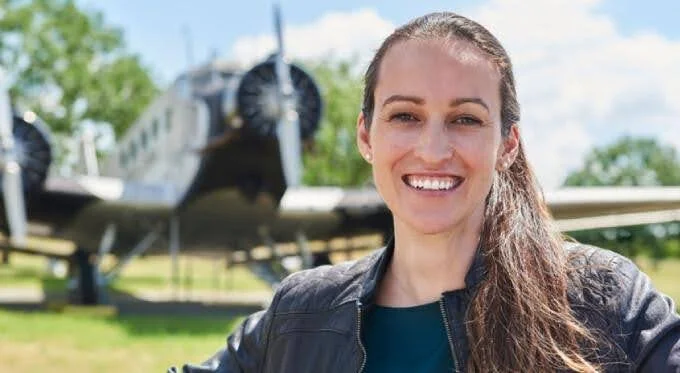From the SAS to the summit: How Nirmal Purja proved that teamwork can conquer the impossible
Nirmal “Nims” Purja is not just a record-breaking mountaineer; he is also a formidable team-building speaker whose extraordinary exploits offer deep lessons in collaboration, leadership, and resilience.
As a former Gurkha and the first Gurkha to join the UK Special Boat Service, Nirmal’s military background gave him a rare understanding of what it takes to operate in elite teams under extreme pressure.
His crowning achievement came when he led the Project Possible mission: summiting all 14 of the world’s highest peaks in just six months and six days - a feat that not only shattered world records but also showcased how an effective team can surpass what most believe is humanly possible.
In this exclusive interview with The High Performance Speakers Agency, Nirmal reveals how to forge teams that thrive in adversity, the leadership mindset behind daring goals, and the principles that unify diverse individuals into a single high-performing unit.
Q: You’ve often spoken about self-belief being your strongest asset. How did you develop what you call your ‘forcefield of positivity’ at such a young age, and what role has that mindset played in your journey from Nepal to the world stage?
Nirmal Purja: “Sometimes, you know, I kind of believe that we all have that, but it’s about recognising those strong components that we all have in our life. Somebody could be strong in something else, and some could be strong in something else. But for me, what no one could take away from me was self-belief — believing in yourself.
“Throughout my life, I have worked with so many counterparts. When I was in school, I had a few friends who were senior to me, but when we were competing on the track and field, if I just looked at the size of those people that I was against on the race, you could probably think, “Why bother even starting the race?” But then I believed that I could beat them.
“When I was going for the Special Forces selection from the Gurkhas - and just to give you a background, no one else from the Gurkhas had ever made it into SBS - it was completely alien.
To work with the SBS, you’ve got to be good not only on land, air, and water, but the diving aspect - working underwater - was a completely new world to me. And people who come from Nepal, a landlocked country, thought it was impossible. Even my colleagues and seniors told me that, but they didn’t know me.
“That’s the self-belief - one thing no one can take away from you. Doesn’t matter who you are, or who you know, even if someone you respect tells you otherwise, they don’t know you. As long as you believe from your chest and put 100% into it, with full commitment - that’s what matters.”
READ MORE: Explorer Mark Wood: The chilling truth about our warming planet
Q: You live by two guiding rules — ‘Hope is God’ and ‘Little things matter’. Can you tell us how these philosophies have shaped your approach to life, leadership, and the extreme challenges you’ve faced?
Nirmal Purja: “Little things matter. In bigger operations or anything we do in life, it’s not the big things that make the huge difference - it’s about attention to detail.
“For example, when I was going through Special Forces selection, I was one of the few brown Nepali men among 200 six-foot-tall white men.
“You had to stay undiscovered during selection. If they picked you up early, you were finished. So, I paid attention to every detail - from how I acted to even learning British humour.
“I used to go on Google, search for “British sense of humour”, memorise five or six jokes, and use them during training. It was all about fitting in - the small details mattered.
“And when I say “Hope is God”, I mean that literally. I’m not religious, but hope is what keeps us alive. When I was in SBS or climbing mountains at 75km/h winds, freezing cold - if you give up hope, you die. Hope keeps us motivated. Hope keeps us alive.”
Q: Growing up among Gurkhas, you went on to break barriers by joining the UK Special Forces. What gave you the conviction that you could achieve something so few from your background had done before?
Nirmal Purja: “Since I started climbing mountains, I thought, “Why can’t I completely do this?” Being brutally honest, it’s not about ego - if I do something, I strive to be the best. Otherwise, I won’t bother.
“Every individual should be like that. We all have strengths and weaknesses. Don’t just do things for the sake of doing them. If you’re reading a book, learn from it. Don’t just aim to finish it. It’s all about mindset.”
YOU MAY ALSO LIKE: How Mitch Hutchcraft went from extreme challenges to inspiring the business world
Q: Many people know the legend of the Special Forces, but few have lived it. What were your first impressions when you joined, and how did you prepare yourself — mentally and physically — for the intensity of that environment?
Nirmal Purja: “I was so respectful of the UK Special Forces. I used to hear rumours - that they were like gods. I’d never seen them before. So, my training was extreme. I’d wake up at 1 am, carry 80 pounds, tab to school, train with the military at 7 am, then work full labour days at the Royal Engineers School in Chatham.
“In the evenings, I’d run back, clean, then go to the gym, cycle 64 miles, and practise swimming. I wasn’t good at swimming - we never had water in Nepal - but I forced myself to improve. I’d do 100 lengths of 25 metres before getting home around 10 pm.”
Q: Your work ethic is extraordinary. What was the driving force behind your relentless training and commitment from such an early age?
Nirmal Purja: “I always believed that if you want to be the best in the world, you shouldn’t have any excuses. Excuses are for losers. Have you ever heard a winner make excuses? No.
“Even when I failed to summit a mountain, I might have made excuses - but that’s because I failed. I don’t want to fall into that category. If you lose, you lose - it’s that simple.”
Q: You’ve mentioned that before taking on a challenge, you embrace all possible excuses — and then move past them. Can you explain this mindset and how it helps you execute under pressure?
Nirmal Purja: “If we all worry about problems, there will be no solution. Problems exist - but I focus on what’s priority one right now.
“When I’m on the mountains, there are hundreds of problems, but if I focus on all of them, I’ll forget to put my next step right. So, I live in the moment. I focus only on what’s necessary and ignore distractions. My focus becomes razor-sharp.”
MORE LIKE THIS: From fighter jets to space dreams: Nicola Winter on building mental resilience
Q: Focus is critical when you’re thousands of feet above ground in life-threatening conditions. How do you maintain clarity and composure when every step could mean survival or failure?
Nirmal Purja: “Of course, not every step is perfect. There are moments of rest, moments of pain. When you’re pushing through suffering, I visualise the end - seeing myself through the dark tunnel, reaching the other side.
“I always had a purpose - something bigger than myself. When I left my job, my mother thought I was doing it because of family burden. But I told her, “No, this project is bigger than me.”
“I wanted to show the world that nothing is impossible. I wanted to raise the name of Nepalese climbers and raise awareness about climate change and sustainability.
Those were my core pillars - but within them, I also represented the Gurkhas, the UK Special Forces, and Nepal itself. I couldn’t fail any of them.”
Q: Many people let excuses hold them back from pursuing their dreams. What’s your message to those who think circumstances define their limits?
Nirmal Purja: “A solid example - a friend from the Special Forces once told me to delay my project because I didn’t have the funding. He said, “Prepare well, and go next year.” But if I had listened, I’d have missed the opportunity - 2020 became the year of the pandemic.
“You should never think about second options. If you plan to run a marathon, don’t plan to give up halfway. You can always give up if you must - it’s easy - but don’t plan for it.
“I came from nothing - poor background, no shoes, living above chicken coops. I failed my first Gurkha attempt but made it the second time. From that to the Special Forces, to climbing the world’s 14 highest mountains - it’s all proof that we create our own opportunities. Work twice as hard.”
This exclusive interview with Nirmal Purja was conducted by Megan Lupton of The Motivational Speakers Agency.
READ NEXT: What leading teams on the edge of the world taught Ann Daniels about true resilience




